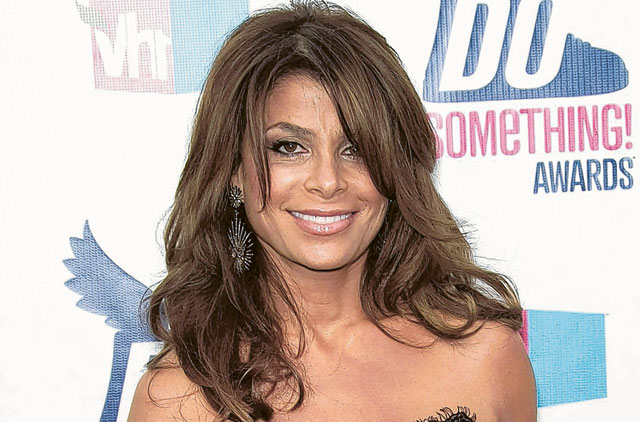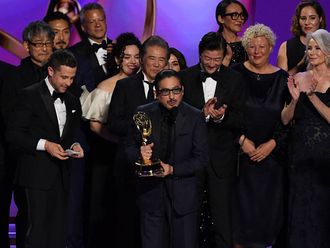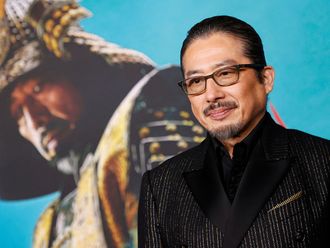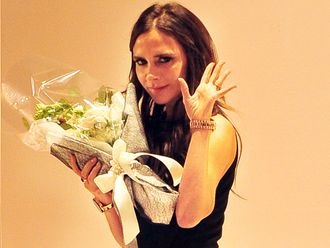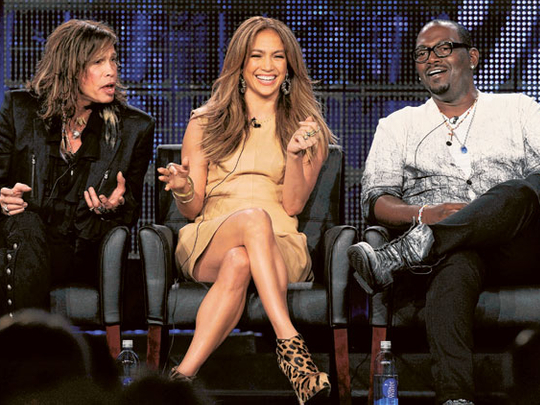
When a husky, mustached auditioner awkwardly snaps his way through Billy Joel's The Longest Time in front of Steven Tyler, Jennifer Lopez and Randy Jackson, something totally out of the ordinary happens: They don't make fun of him.
Instead, the new American Idol judging team encourages him to become a disc jockey instead of a singer.
It seems the essence of Simon Cowell has been exorcised from the 10th season of Idol. If clips of the first series of auditions are any indication, Tyler and Lopez will be hugging and kissing more Idol wannabes in their inaugural season than Cowell ever did in his nine nasty years on the Fox singing competition.
"I think with every artist, and Jennifer and Steven are legendary artists, you have a lot of warmth and a lot of nurturing," said Jackson, the lone original judge remaining on the panel. "That's what happens. We've seen it in other seasons when we've had artists come in and mentor the singers. They really love on these kids, and I think that's good."
It is not the first time Idol has injected such niceness into its permanent judging panel. One year ago, viewers were preparing for chipper talk show host Ellen DeGeneres, who acknowledged she had no music industry experience, to take a seat behind the table. She left after one season because she said it was hard to judge people and hurt their feelings.
The departures of DeGeneres, Cowell and two-term judge Kara DioGuardi have opened the way for a new kind of Idol, one that will either bounce back from a ratings slump or slip further away from the top spot. American viewers have never known an Idol that does not feature Cowell's rolling eyes, one-liners or antagonistic adjectives. Will they embrace it?
"We're certainly back to having fun," said executive producer Nigel Lythgoe, who rejoined the singing competition after a two-year hiatus. "At some point along the way, and we're certainly all guilty of it, we started taking ourselves too seriously. I know the ratings are a serious game, but as far as I'm concerned, my job and their job is to generate fun."
Such an attitude adjustment is not confined to Idol. Paula Abdul, the original heart of the Idol panel, has taken her fairy godmother routine to the new CBS hip-shaking competition Live to Dance, where she is quick to remind everyone that she now serves as a mentor, not a judge, although she and her expert team do give gold stars to worthy dancers.
Paradigm shift
"It's not about, ‘Oooh. You're eliminated. You didn't make it,'" Abdul said of the show's dismissal ritual at the West Coast auditions last year. "It's about a celebration of who is advancing to the finals. It's a paradigm shift. It's about how we're going to, as experts, help these acts to nail that next audition, even though they're not making this one."
Live to Dance already is favouring sugar over spice, judging by last week's first semifinal love fest. Abdul, along with Michael Jackson's This Is It choreographer Travis Payne and former Pussycat Dolls member Kimberly Wyatt, handed out 11 gold stars and seven dreaded red ones, with just one act receiving unanimous disapproval from the show's three experts.
Perhaps the Live to Dance experts are taking a cue from the Dancing With the Stars judges, who have typically treated celebrities-turned-dancers with kid gloves. They were particularly pleasant last season to Bristol Palin, even though fellow competitors such as Brandy, Kyle Massey and Jennifer Grey continually out-danced Sarah Palin's daughter.
When lippy Bruno Tonioli dared to deem Michael Bolton's jive the worst he ever saw, the audience was shocked and the crooner was outraged, later demanding an apology. It is a line that all reality TV judges must balance. If they are too rude, the audience will write them off as being mean for mean's sake. If they are too sweet, they will lose viewers' trust.
"I'm very honest, but I don't go out of my way to be mean or clever," said singer-songwriter Jewel, who is judging and hosting Bravo's coming Platinum Hit song writing competition. "I do think the point is to make people better, and I don't think you do any favors by sugarcoating anything. At the same time, I don't believe in dashing anyone's dreams."
The nice-not-naughty approach is not limited to song-and-dance shows. Gordon Ramsay, perhaps the cruelest man in reality TV, simmered his Hell's Kitchen temper last year for the amateur cooking contest MasterChef, which has been renewed for a second season, while the Top Chef judges seem hard pressed to find fault in this season's dishes.
That might be because it is an all-stars edition of Top Chef, or maybe reality TV judges really have become tamer over time. Of course, it might be no more than a passing phase. That probably will be determined over the course of this remixed Idol and ultimately when Cowell returns to the United States this year with his British star-making competition, The X Factor.
Even a good-natured judge can be pushed to the limit, as Tyler proved during a taping of Hollywood Week auditions.
"You took a good pop song and you beat it to death," he bluntly told four contestants who had joined together for a group-performance segment.
Do you like the new softer side of American Idol? Or do you prefer Simon Cowell's more abrupt and cynical approach? Do you think the show will be able to reclaim the top spot? Tell us by posting a comment below.


